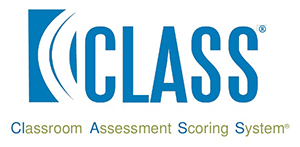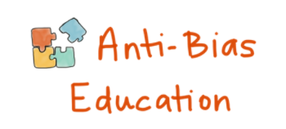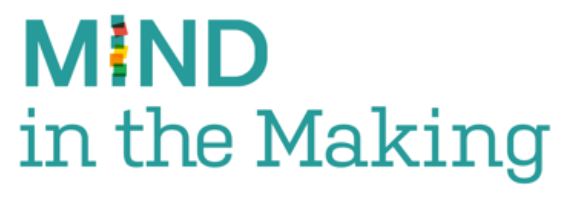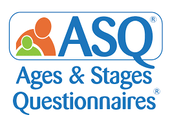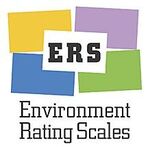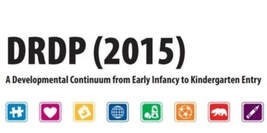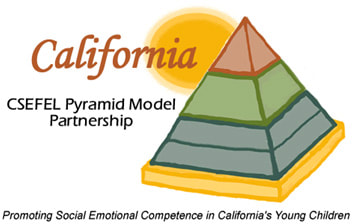Looking for more details on what to expect from QUality Counts training topics?
You're in the right place! Here you will find a growing list of Quality Counts training topics and what to expect from each training.
Navigate through this page quickly by selecting the topic below.
The CLASS model is the most researched framework for assessing teacher-child interactions, measuring their quality, and turning those metrics into meaningful suggestions for improvement.
Quality Counts offers four CLASS trainings that will provide you with language to identify and describe the classroom interactions that promote children’s development and learning:
Quality Counts offers four CLASS trainings that will provide you with language to identify and describe the classroom interactions that promote children’s development and learning:
- Intro to Pre K CLASS: Understand the CLASS Pre K tool which is used for children three to five years
- Intro to Toddler CLASS: Understand the CLASS Toddler tool which is used for children 15 - 36 months
- Intro to Infant CLASS: Understand the CLASS Infant tool which is used for children birth - 15 months
- Advanced CLASS: Dive deeper into CLASS, Focus on specific CLASS dimensions within each class tool, and Practice and share experiences.
Anti-bias work is essentially optimistic work about the future for our children. Anti-bias teachers are committed to the principle that every child deserves to develop to his or her fullest potential. Anti-bias work provides teachers a way to examine and transform their understanding of children’s lives and also do self-reflective work to more deeply understand their own lives.
Quality Counts offers a 4-part Anti-Bias Education Series that includes the following topics:
Quality Counts offers a 4-part Anti-Bias Education Series that includes the following topics:
- Identity: Teachers will nurture each child’s construction of knowledgeable, confident, individual personal and social identities. Children will demonstrate self-awareness, confidence, family pride, and positive social identities.
- Diversity: Teachers will promote each child’s comfortable, empathetic interaction with people from diverse backgrounds. Children will express comfort and joy with human diversity, use accurate language for human differences, and form deep, caring connections across all dimensions of human diversity.
- Justice: Teachers will foster each child’s capacity to critically identify bias and will nurture each child’s empathy for the hurt bias causes. Children will increasingly recognize unfairness (injustice), have language to describe unfairness, and understand that unfairness hurts.
- Activism: Teachers will cultivate each child’s ability and confidence to stand up for oneself and for others in the face of bias. Children will demonstrate a sense of empowerment and the skills to act, with others or alone, against prejudice and/or discriminatory actions.
Mind in the Making, a program of the Bezos Family Foundation, shares the science of children’s learning through innovative in-depth training and materials geared for action. MITM’s Learning Modules, Skill-Building Opportunities and Book Tips serve professionals and caregivers across a wide array of sectors and take a two-generational approach to building executive function-based life skills within children and families together.
Quality Counts offers an 8 part series for Mind in the Making that includes topics such as:
Quality Counts offers an 8 part series for Mind in the Making that includes topics such as:
- Focus and Self-Control. Children need this skill to achieve goals, especially in a world filled with distractions and information overload.
- Perspective Taking. This involves understanding what others think and feel, and forms the basis for children’s understanding of the intentions of parents, teachers and friends.
- Communicating. Much more than understanding language, reading, writing and speaking, communicating is the skill of determining what one wants to communicate and realizing how it will be understood by others.
- Making Connections. This Life Skill is at the heart of learning: figuring out what’s the same, what’s different, and sorting them into categories.
- Critical Thinking. This skill helps children analyze and evaluate information to guide their beliefs, decisions and actions.
- Taking on Challenges. Children who take on challenges instead of avoiding or simply coping with them achieve better in school and in life.
- Self-Directed, Engaged Learning. By setting goals and strategies for learning, children become attuned and better prepared to change as the world changes.
The Ages & Stages Questionnaires® (ASQ®) provides reliable, accurate developmental and social-emotional screening for children between birth and age 6. Drawing on parents’ expert knowledge, ASQ has been specifically designed to pinpoint developmental progress and catch delays in young children—paving the way for meaningful next steps in learning, intervention, or monitoring.
Quality Counts offers an introduction to ASQ as well as ASQ: SE Tools. In this introduction you can expect to:
Quality Counts offers an introduction to ASQ as well as ASQ: SE Tools. In this introduction you can expect to:
- Become familiar with the ASQ and ASQ:SE questionnaires
- Practice Scoring the ASQ and ASQ:SE
- Learn how to talk to parents about the ASQ and ASQ:SE results and make referrals
The Program for Infant/Toddler Care (PITC) approach equates good care with trained infant/toddler care teachers who are preparing themselves and the environment so that infants can learn. For care to be good, it must explore ways to help infant/toddler care teachers get "in tune" with each infant they serve and learn from the individual infant what he or she needs, thinks, and feels.
Some topics that will be covered by this 8 part training series includes:
Some topics that will be covered by this 8 part training series includes:
- Social-Emotional Milestones & Temperament
- Understanding Children’s Behavior & Guidance and Discipline
- Continuity of Care & Routines
- Environments & Small Groups
- Brain Development & Discoveries of Infancy
- Language Development and Communication & Special Needs
- Acknowledge, Ask, Adapt & Protective Urges
- Cultural Sensitivity & Harmonizing Cultural Diversity
The Environment Rating Scale® Family of Products is designed to assess overall program quality in a variety of early childhood and after-school settings, measuring both teacher-child interactions plus environmental provisions that affect the broad developmental needs of young children. This training is ideal for those who need a refresher on how to use ERS materials and assessments to improve the physical environment of their classroom.
Join Quality Counts staff for a crash course in navigating the ERS tools Infant Toddler Environment Rating Scale (ITERS) and the Early Childhood Environment Rating Scale (ECERS).
Join Quality Counts staff for a crash course in navigating the ERS tools Infant Toddler Environment Rating Scale (ITERS) and the Early Childhood Environment Rating Scale (ECERS).
The DRDP is a child observation tool that is used to document and track individual child development over several developmental domains. The DRDP is used primarily by State Funded and Head Start Preschool Programs, but is seem more and more in private center-based, and family child care homes as well.
Quality Counts offers three DRDP stand-alone trainings:
Quality Counts offers three DRDP stand-alone trainings:
- DRDP Teacher Training: Learn more about DRDP (2015) content, Learn to explore resources available, Gain a greater understanding of the purpose of the DRDP (2015), and Practice rating.
- DRDP Meaningful Observations: Practice Observing, See a variety of observation materials and techniques, Practice anecdotal writing skills, and Learn about portfolio options.
- DRDP Planning with Data: Become familiar with the CA Preschool Foundations and Framework, Analyzing Data generated from DRDP, Strategic planning using the Curriculum Frameworks, and Ideas for individualization and lesson planning
The SEFEL Training Series is a 5 part series focused The Teaching Pyramid. The Teaching Pyramid is a comprehensive approach designed to help educators promote social-emotional competence, address challenging behaviors in young children,and develop safe and nurturing group environments for all children.
Some topics that will be covered by this 5 part training series includes:
Some topics that will be covered by this 5 part training series includes:
- Social-Emotional Development in the Context of Relationships
- Responsive Routines & Environments
- Social-Emotional Teaching Strategies
- Determining the Meaning of Challenging Behavior
- Individualized Intensive Intervention
More descriptors will be added as we add trainings!

